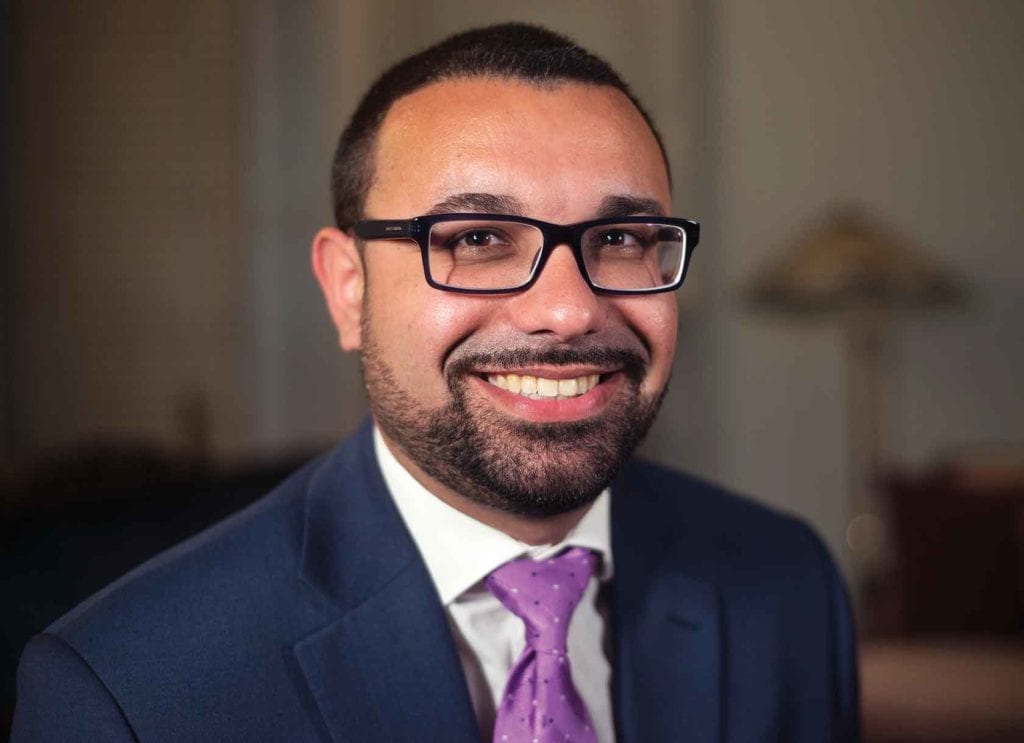
Data from federal, state and local sources show that the COVID-19 pandemic is placing a disproportionate burden on black and Latinos across the country. Boston City Councilor Ricardo Arroyo noted Wednesday that this inequality may be exacerbated by recent rationing guidelines from the state’s Executive Office of Health and Human Services. The guidelines advise hospitals to prioritize patients without underlying conditions — conditions that are more often found in people of color.
“If we deny ventilators and ICU beds based on preexisting conditions — caused in part or in whole by racism — it will impact people of color disproportionately,” said Arroyo. “It would be a continuation of systemic racism directly leading to worse health outcomes for people of color.”
People of color have the highest rates of diabetes, kidney disease, heart disease and certain respiratory diseases. The Department of Health and Human Services in 2017 found that black Americans are twice as likely to die from diabetes as whites. The data also found that black Americans are 20% more likely to die from heart disease. COVID-19 patients with these diseases often require intensive care and have the highest likelihood of death.
During the April 15 council meeting, Councilor Andrea Campbell noted that these disparities have existed in communities of color for a long time. She agreed that racism is the driving force behind the health inequities; it has dictated where people live, work or go to school.
“As a result of this marginalization, oppression and exclusion, these communities have suffered tremendous devastation, including economic hardship, poverty, health diseases — and of course, death,” she said.
Arroyo called for a hearing to discuss the guidelines and to ensure that race doesn’t dictate medical care.
Immigrant communities are also disproportionately affected by the outbreak. Councilor Ed Flynn offered a resolution supporting these communities.
“Emergency doctors have reported an influx of Latinx, Spanish-speaking patients who are critically ill,” said Flynn.
He said that many immigrants are frontline workers; they are exposed to the virus in hospitals, grocery stores and custodial jobs. They face barriers when seeking help, he said. Many do not qualify for assistance because of their immigration status.
Councilor Lydia Edwards added, “Too many of the narratives around immigrants are negative, they’re blaming, they’re scapegoating them. Today’s resolution is uplifting and reminding us of who we are as a nation … a country that should continue to welcome immigrants.”
Councilor Julia Mejia also sought to reduce barriers for immigrants by improving citywide language access. She said that many non-English-speaking residents are not getting necessary information and called for a hearing order to address these issues.
“When information does come out in regard to any relief fund or any resource, it usually rolls out first in English,” she said. “By the time people get the information, it is either too late for them to apply or they need to work a little bit harder to find people to help them translate.”
Mejia noted that more than 140 languages are spoken in Boston, and some multilingual neighborhoods, like Mattapan or Dorchester, also have the highest rates of COVID-19 cases.
“Access to information during times like this is crucial to ensure that our residents remain safe and healthy,” she said.
Council President Kim Janey addressed disadvantages for people receiving SNAP benefits and offered a resolution to support expanding SNAP to online services. Many residents who receive benefits either suffer from food insecurity or potentially risk their lives when walking into crowded supermarkets. Many do not have the luxury of food delivery apps.
“By forcing those who rely on SNAP to physically go to the grocery store to use SNAP benefits, our federal partners are exacerbating the racial and socioeconomic disparities evident with this crisis,” said Janey. She warned not to underestimate the importance of SNAP, as 19% of Suffolk County residents rely on these benefits.
Campbell addressed the local school closures and offered a resolution urging Boston Public Schools to ensure equal access to online learning for all students. She said that many low-income students in communities of color don’t have access to technology.
Campbell’s resolution asks BPS to release certain data: the number of students who have access to remote learning; the number who have requested internet service or computers but do not have it; the students unaccounted for; and attendance and assignment completion rates for all classrooms.
“There is not a citywide standard for high-quality remote learning,” said Campbell. Due to this, she said, achievement gaps might deepen.
The councilors also took up the issue of COVID-19’s potential impact on in-person voting.
Despite the outbreak, many states have still held primary elections recently. Congressman Joe Kennedy III has advocated for vote-by-mail, sending a letter April 11 to Massachusetts House Speaker Robert DeLeo and Senate President Karen Spilka, urging legislators to enact vote-by-mail in Massachusetts for the entirety of the election cycle.
Councilor Matt O’Malley on Wednesday spoke in favor of vote-by-mail elections in the coming months. COVID-19 is highly contagious and it could spread easily between clusters of people lining up to vote. O’Malley called for a hearing to start preparations for the upcoming September and November elections.
Councilor Lydia Edwards said, “Nobody should be forced to think between their health and voting.”
Councilor Kenzie Bok warned that even prior to COVID-19, elections were not designed to ensure participation. Now, the state has a chance to protect voters and maximize the franchise.
“This public health emergency, which is ravaging us in so many ways, does provide an opportunity to at least set right something that has been wrong,” Bok said.






